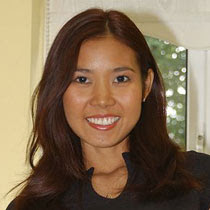There are people who describe themselves as "pro-life" who say that life begins at conception. But how do we define "life" in this case?
In the broad sense, life means "the condition that distinguishes animals and plants from inorganic matter, including the capacity for growth, reproduction, functional activity, and continual change preceding death" but based on that definition every cell of our body has its own life, including individual sperm cells. Another definition of life is "the existence of an individual human being or animal".
So when is a person alive? This is not a scientific question: it is a philosophical question. Rene Decartes, when asked to prove that he existed said "I think therefore I am".
This is certainly how we define death: a person is dead when their brain no longer functions. In practice, we decide that a person is dead because they are no longer breathing, there is no pulse, they have turned pale and cold and they are no longer moving but all these symptoms may be temporary and may not indicate that the person is actually dead: indeed there have been cases where people have not only been revived from a death like state but reported having heard what doctors were saying while they were being revived.
Nevertheless, it is when our brains our no longer functioning that we say someone is "permanently" dead and, therefore, unable to be revived. The same criteria, probably should be applied to the beginning of life as well.
The brain doesn't even begin to form until 5 weeks into pregnancy. According to JM Goldenring as published in the Journal of Medical Ethics. 1985 Dec;11(4):198-204, "This paper suggests that medically the term a 'human being' should be defined by the presence of an active human brain. The brain is the only unique and irreplaceable organ in the human body, as the orchestrator of all organ systems and the seat of personality. Thus, the presence or absence of brain life truly defines the presence or absence of human life in the medical sense. When viewed in this way, human life may be seen as a continuous spectrum between the onset of brain life in utero (eight weeks gestation), until the occurrence of brain death. At any point human tissue or organ systems may be present, but without the presence of a functional human brain, these do not constitute a 'human being', at least in a medical sense."
That would seem to settle the issue. Of course, there is one problem with this and that is that the brain continues to develop even after birth. I suppose that is why, legally, a person is only considered a separate individual until they can breathe by themselves, ie after they are born. It is only at that point that they are no longer completely dependent upon the mother and can, in fact, be cared for by someone else entirely. Of course, that could simply be the difference between the legal definition of personhood and the medical definition of individual life. It may very well be argued that there is a point after the fetus is medically alive and before the baby is a separate person where the unborn child should have individual rights. However, that point would be well after conception.





































































































































































































No comments:
Post a Comment